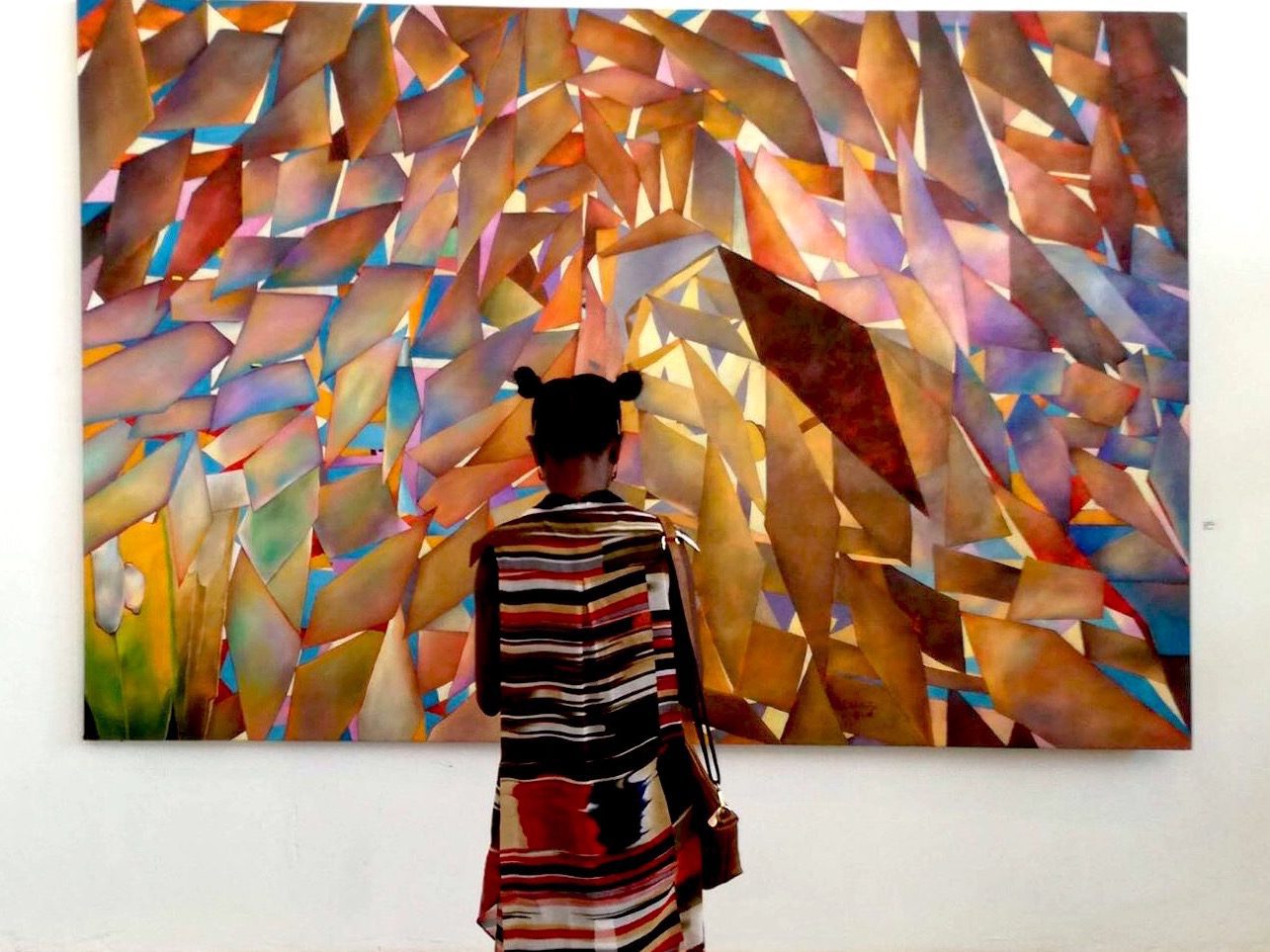In 2002, as Daudi Karungi prepared to graduate from art school in Kampala, Uganda, he was constantly preoccupied with one question: Where would he show his work after graduation? In the absence of gallery space to exhibit, Karungi and his colleagues decided to found their own Afriart Gallery. C&’s Jonah Batambuze met with Karungi to talk about why he has made it his mission to find the next generation of Ugandan artists.

Afriart Gallery, Kampala, Uganda. Courtesy of Jonah Batambuze
Jonah Batambuze: You paused your artistic career to focus on arts management – what prompted this move?
Daudi Karungi: Uganda has some amazing artists, but has suffered the vicious effects of an immature arts management system for more than 60 years. There simply haven’t been enough people dedicated to the arts to push this sector forward. I knew Ugandan artists would never progress if our arts management wasn’t professionalized, so I decided to step back from producing art to focus on promoting it. I’m determined to create a system which pushes Ugandan artists to the highest levels of exposure, and I believe that more Ugandan artists are capable of participating in international exhibitions.
JB: In March 2017, after four months of renovations, you opened Afriart on 7th. How does the new location differ from the original Afriart Gallery at Lugogo show grounds?
DK: Afriart on 7th is an experimental warehouse-style gallery meant to provide a new art exhibition experience. With a double height ceiling and a feature wall of over 20 meters length, size or scale are two main differences to our original site. I want people to imagine art the way they want to produce it and free themselves from the constraints of traditional galleries in Kampala. I believe that we have achieved this with our new space, and there are still ongoing works to improve the space.
JB: There is oftentimes the perception that the Ugandan arts scene only consists of artists supporting other artists. How was Afriart on 7th’s opening received?
DK: The opening was an amazing experience. And every time I put on these events I’m reminded that people need more exposure to contemporary art, and, most importantly, want contemporary art. The crowd at our opening was an eclectic mix of established and emerging artists, university professors, corporate-type professionals, and art collectors. Afriart’s location near a popular cocktail bar named “The Embers” also helps attract a young and creative crowd interested in our events. I’m extremely encouraged that every day we are attracting a new arts lover who might not have known we existed. And it puts everything in perspective, thinking back to our first show 15 years ago, when very few people (potential clients or artists themselves) had been exposed to contemporary art.
JB: Afriart has exhibited the works of over 100 East African artists. What is your hope for the next generation of Ugandan artists?
DK: I hope the next generation of Ugandan artists takes advantage of the “wave” of interest currently focused on African contemporary art. Culturally, the stigma associated with becoming an artist still exists; however, it’s clear that artistic careers can also be lucrative. I’m looking for artists creating art that is avant-garde and hasn’t been seen in the country, or artists that are doing something that we know, but in a different way. And I’d like Afriart to be a catalyst in creating and discovering these new artists.
JB: What are your future plans for your galleries?
DK: One of Afriart’s main focuses is to unearth “undiscovered gems” of the Ugandan arts scene, while at the same time helping the next generation achieve its break-through. I’m determined to see what the next generation of artists can make, and also what we can do to help them come out of their shells. Afriart believes that exposing artists to the world will allow them to open up, think differently, and hopefully become activists about issues affecting them.
There are also Ugandan artists in the Diaspora, like Paul Sepuya, who are creating impressive artworks. We plan on exhibiting successful Ugandan artists from abroad, to inspire the youth, and raise the standards.
Lastly, we’re arranging more consistent programming for both of our galleries. We want both artists and the public to be aware of what we’re exhibiting, and also aware of the types of art we’re seeking.
Jonah Batambuze is a freelance culture and travel writer based outside of London. In 2016, Batambuze co-founded Color Wheel Media to amplify the voices of organizations and individuals underrepresented in the media.
More Editorial